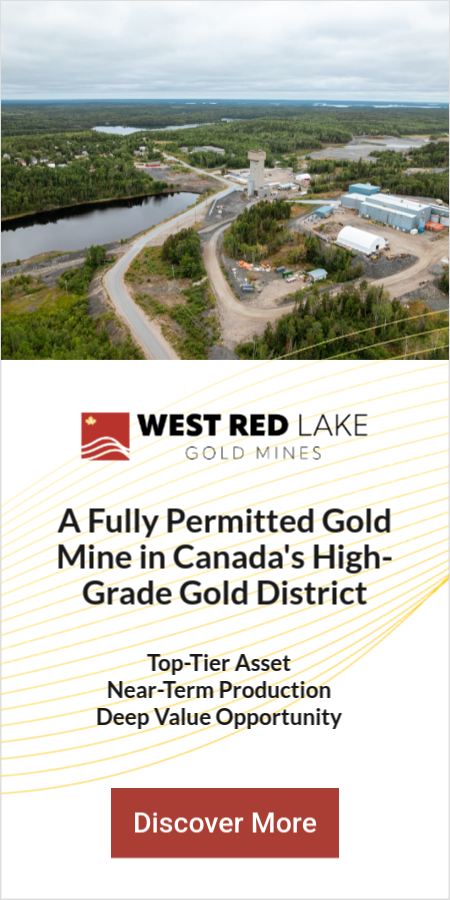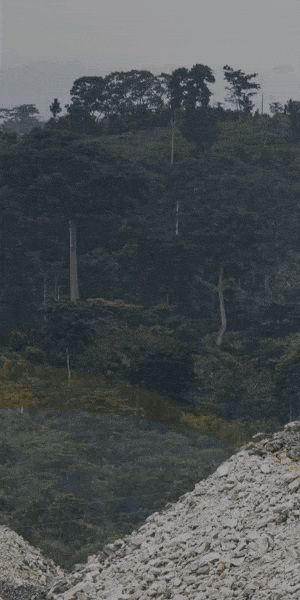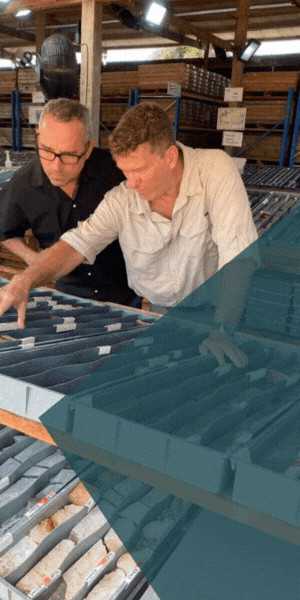Resource Nationalism & Permitting Shape Mining Investment Landscape
.png)
Resource nationalism shapes mining investment viability. US regulatory changes create opportunities, while Western Australia leads in permitting efficiency for gold-copper projects.
- Resource nationalism and political risks are critical factors when evaluating mining investments, with permitting timelines becoming a significant differentiator between jurisdictions.
- Western Australia is considered one of the best mining jurisdictions globally due to its favorable rule of law and reasonable permitting timelines (1-2 years vs. 5-10 years in the US).
- President Trump recently signed a Mineral Production Order aimed at expediting mining permits in the US, potentially creating a "renaissance in US mining" over the next 3-4 years.
- Rule of law is considered a binary factor in investment decisions, but can change unexpectedly, as seen in Mali, Panama, and other jurisdictions that were once favorable.
- Favorable jurisdictions currently include the US (with new regulatory changes), Guyana (due to oil wealth and desire for mining jobs), Brazil, Western Australia, and recently Morocco.
In an increasingly complex geopolitical landscape, investors seeking opportunities in the mining sector must carefully navigate the shifting terrain of resource nationalism and political risk. A recent discussion between Samuel Pelaez, President & CEO, and Derek Macpherson, Executive Chair, at Olive Resource Capital offers valuable insights into this critical dimension of mining investments. With gold prices recently exceeding $3,100 and copper's strategic importance to energy transition, understanding jurisdictional advantages has become paramount for investors in these metals.
The Immovable Reality of Mining Investments
The fundamental truth of mining investments is unchangeable. As Derek emphasizes: "you can't move the rocks, the rocks are exactly where they are...and you have to mine them there."
This geographical constraint makes jurisdictional considerations particularly crucial for mining investments compared to other sectors. How a particular jurisdiction will treat a project from a permitting perspective and how local communities view the development are critical determinants of whether a resource can ever become economically viable.
Most investors begin their analysis by sorting jurisdictions into broad categories based on political risk, typically favoring Western Europe, parts of the Americas, and Australia. However, successful mining investment requires a more nuanced approach that examines both rule of law and permitting timelines.
Rule of Law: A Binary but Changeable Factor
Olive Resource Capital considers rule of law as a "binary" factor in their investment decisions—either a jurisdiction has a reasonable rule of law standard or it doesn't. However, this binary state can change unexpectedly. The Duo cite Mali as a particularly troubling example, where some Canadian miners faced sudden, coercive rule changes last year, making it a jurisdiction where new investments are now viewed with extreme caution.
Other examples highlight the volatile nature of jurisdictional risk. Panama's conflict with First Quantum Minerals over the Cobre Panama copper mine demonstrates how even established operations can face severe challenges when government policies change. Similarly, Bolivia nationalized a South American Silver asset in 2011, and Ecuador temporarily halted permitting for Fruta del Norte, now an "amazing asset" under different ownership. As Derek notes, what investors ultimately seek is stability:
"We want things to stay the same."
This desire for predictability explains why the firm has minimal investments in Mexico, where mining law changes have created significant uncertainty for development-stage projects.
Permitting Timelines: The Critical Differentiator
While rule of law may be binary, permitting timelines exist on a spectrum and represent a major differentiator between otherwise comparable jurisdictions. Western Australia is suggested as perhaps the best mining jurisdiction globally, with permitting timelines of just 1-2 years. By contrast, Canadian projects might require 4-5 years for permitting, while US projects have historically taken 5-10 years or more.
Derek cites the Rosemont copper project in Arizona, which has been seeking permits for over 15 years. This stark contrast in timeline efficiency significantly impacts project economics and investor returns, even when comparing jurisdictions with similar rule of law standards.
Compass, Episode 10
The US Mining Renaissance
A potentially transformative development occurred recently with President Trump's signing of the Mineral Production Order, which aims to normalize and reduce the cost and timeline for mining permits in the United States. This executive action appears set to address one of America's key competitive disadvantages in the mining sector.
The Duo suggests this policy shift could trigger a "renaissance in US mining" over the next 3-4 years. They note several companies already positioning themselves to benefit from this change:
- Mako Mining purchased the Moss Mine out of bankruptcy, representing a strategic pivot toward US assets for a company previously focused on Nicaragua and Guyana.
- Minera Alamos, historically concentrated in Mexico, has acquired US assets partly in response to the changing regulatory landscape.
- Trilogy Metals and its partner South32 saw stock price increases following the presidential election, anticipating favorable treatment for their massive VMS project, which will benefit from the approved Ambler Access Road.
- Perpetua Resources (formerly Midas Gold) recently received permits for its Stibnite project in Idaho after 10-15 years in the permitting process, partly due to the antimony component's strategic importance.
For investors, the message is clear:
"If you got a project that's close to permitting, you should be going after permitting."
With approximately 3.5 years until a potential administration change, companies have a window of opportunity to advance projects through what is expected to be an expedited process.
Strategic Metals & Resource Nationalism
While gold's strong performance (exceeding $3,100 at the time of recording) dominates current mining discussions, the Duo emphasize that resource nationalism impacts strategic metals even more significantly. They specifically highlight rare earths and copper as elements where China currently maintains substantial control, creating opportunities for projects in western jurisdictions.
Their firm has positioned itself accordingly with investments in Arizona Sonoran (copper) and platinum plays like Bravo in Brazil and Chalice in Western Australia. These investments align with both metal-specific fundamentals and the broader theme of western nations seeking to secure domestic supply chains for critical minerals.
Emerging Favorable Jurisdictions
Beyond the US regulatory shift, the podcast identifies several emerging jurisdictions with increasingly favorable conditions for mining development:
- Guyana has fundamentally changed in recent years following major oil discoveries. The resulting government revenue has funded infrastructure improvements that benefit mining operations, while creating a need for job-creating industries to complement the capital-intensive but employment-light oil sector. The government is actively encouraging mining development to provide stable, long-term employment.
- Brazil continues to demonstrate reasonable permitting timeframes, with Bravo Mining recently receiving preliminary permits in an expedient process, allowing the project to officially transition from exploration to development stage.
- Argentina has implemented major economic changes under President Milei that appear to make the country more attractive for resource development, though the executives caution that state-level permitting authority creates variability within the country.
- Morocco has emerged as a surprising new entrant in favorable mining jurisdictions, with Aya Gold & Silver's success transforming "a country that nobody had on its radar" into an active mining destination with multiple projects advancing rapidly.
Management Experience: The Overlooked Factor
An often underappreciated aspect of jurisdictional risk is the value of management teams with specific experience in a given country. Companies with leadership who have successfully navigated a particular jurisdiction's permitting and regulatory environment have a significant advantage. This institutional knowledge cannot be easily replicated and provides important risk mitigation when operating in complex regulatory environments.
Investment Implications
For investors considering precious metals exposure, the jurisdictional analysis presented offers several important implications:
- Prioritize projects in stable jurisdictions with demonstrated permitting efficiency, with Western Australia, Quebec, and certain US states like Nevada representing top-tier options.
- Consider a potential timing advantage for US projects that can benefit from the current administration's permitting focus, particularly those already in or approaching the permitting phase.
- Evaluate management teams for jurisdiction-specific experience that can help navigate regulatory complexities more effectively than newcomers to a region.
- Monitor jurisdictional changes proactively, recognizing that both positive and negative shifts can create investment opportunities or signal the need for portfolio adjustments.
- Distinguish between risks to developers versus producers, as existing mines typically face less disruption from political changes than projects still seeking permits, though exceptions exist as demonstrated by the Cobre Panama situation.
The intersection of resource nationalism, permitting timelines, and rule of law creates a complex but navigable landscape for gold-copper investors. By understanding these jurisdictional factors and their impact on project economics, investors can better position their portfolios to capitalize on both the strong precious metals market and the growing strategic importance of copper.
As resource nationalism continues to influence government policies worldwide, companies operating in jurisdictions with clear regulatory frameworks, reasonable permitting timelines, and stable governance will likely command premium valuations. For investors with the patience to evaluate these often-overlooked factors, the potential rewards include not just exposure to favorable metal prices but also reduced execution risk and more predictable development timelines.
Analyst's Notes




Subscribe to Our Channel
Stay Informed

































